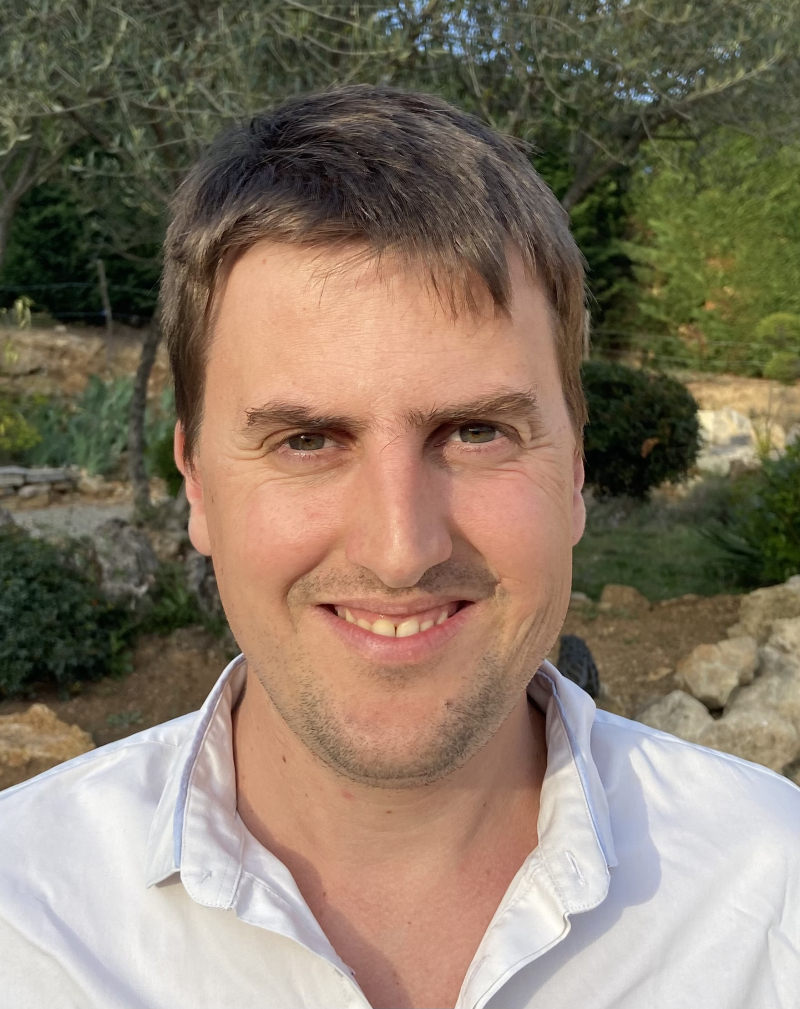Interview with Mikael de la Salle, invited speaker at ICM2022
Interview with Mikael de la Salle, CNRS senior researcher at the Camille Jordan Institute (CNRS, Ecole centrale de Lyon, Insa de Lyon, Claude Bernard University and Jean Monnet University), invited speaker at ICM2022 in section 7, Lie Theory and Generalisations, and section 8, Analysis.
Link to the virtual ICM 2022 talks
What is your field of research?
My current research is in functional analysis. To be more precise, I’m interested in questions about operator algebra, harmonic analysis, and the theory of Banach spaces. Very often, and increasingly so, we are dealing with groups. For example, I might study the von Neumann group algebras, or the representation of groups on Banach spaces. I also sometimes work entirely on questions of geometric group theory.
What do you like about being a mathematician?
A lot of things. My ending up in this profession involved a lot of chance and last-minute changes of direction, but I have never regretted my choices. Being a mathematician is very exciting and very varied, never dull. Exploring worlds that have never been explored and being the first to make a discovery can be fascinating. All of that is generally applicable to the profession of researcher, but as I see it, what is specific to maths is that this exploration is done wholly in the mind, with few material constraints. Mathematical research doesn’t depend on large machines or massive funds. That means that we are free in our research choices, and it is easy to make changes to our research themes and programmes. This also creates great liberty and flexibility in work time organisation, which is very helpful for family life. Another thing specific to mathematics is its definitive and immutable character: a theorem remains true for all time and will not be subject to reconsideration. I found that aspect very attractive and reassuring at the beginning of my career, though it seems less important now.
Have you already decided what you are going to talk about at the St Petersburg ICM?
Yes. I am going to talk about semisimple Lie groups and their arithmetic networks, like the SL(n,R) group of real matrices with determinant 1, and its SL(n,Z) sub-group of matrices with integer coefficients. I will present an idea that is simple but fruitful, whose origins lie in the work of Vincent Lafforgue, which I have further developed with several other mathematicians (notably Uffe Haagerup, Tim de Laat et Benben Liao) in the past ten or so years; to understand complex phenomena in such large groups, we restrict ourselves to compact (small) subgroups, where analysis is much easier. This idea has been used specially to study certain kinds of representations (enhanced property (T) and its Banachian forms), and the approximative properties of von Neumann algebras. It has also been used recently in dynamic systems, with Brown, Fisher, and Hurtado’s resolution of Zimmer’s conjecture about the actions of diffeomorphisms of arithmetic networks on small compact varieties.
What does this congress represent for you?
It’s a great honour for a mathematician to present their work there. So, I was very surprised to receive the invitation. I was very curious and rather excited: I have never been to an international mathematics conference, and the image I had of one was of a big celebration of mathematics. With the cancellation of the physical version and its movement on-line, I’m curious to see how the congress will work out. I will certainly be very motivated to attend the next one in four years’ time...

Contact
Mikael de la Salle is a CNRS research director, member of the Camille Jordan Institute (CNRS, Ecole centrale de Lyon, Insa de Lyon, Claude Bernard University and Jean Monnet University).
Orateurs et oratrices invités à l'ICM2022
Liste des collègues orateurs et oratrices de l’ICM 2022, qui se tiendra du 6 au 14 juillet en ligne.
